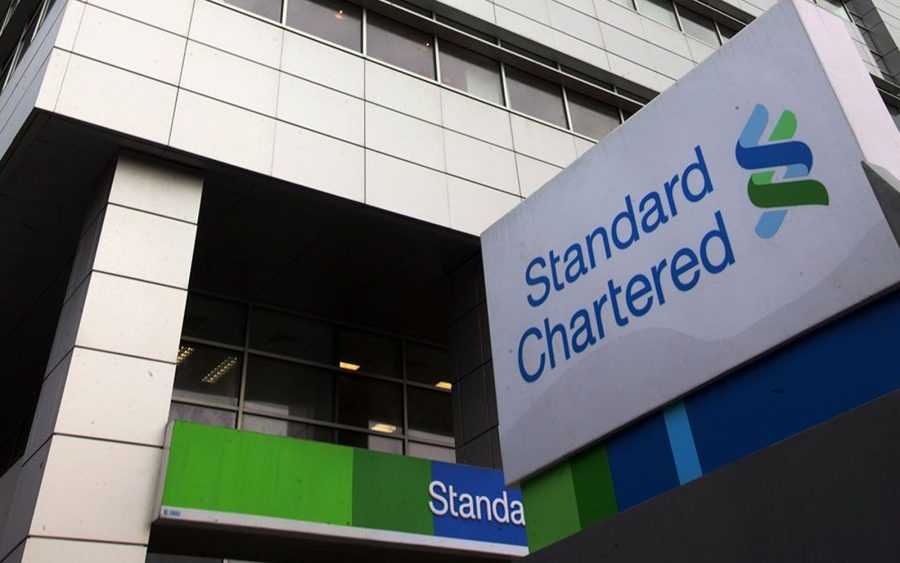Too big to fail. Is anyone or anything really too big to fail? 10 years ago, the answer to this may have been yes; some institutions, some businesses, some countries, some people are reckoned to be too big to fail. But financial history took a turn on September 15, 2008, when Lehman Brothers, the fourth biggest investment bank in the United States, and one of the top 10 around the world, collapsed.
Lehman Brothers, with an asset base of over $600 billion filed for bankruptcy. This was at a time when the Gross Domestic Product (GDP) of the two leading economies in Africa was less than $600 billion — Nigeria at $208.1 billion, South Africa at $287.1 billion, according to World Bank figures. Its assets also far surpassed those of previous bankrupt giants such as WorldCom, whose asset base was over $107 billion and Enron’s over $63 billion, making Lehman’s bankruptcy filing the largest in history. It was unprecedented in the history of the United States — that a 158-year-old company, with the size, scope and reach of Lehman Brothers could file for bankruptcy.
The mighty do not just fall; they stumble, they stagger, they get betrayed by balance, and then, they fall. This is the story of Lehman Brothers. The demise of the company and its 26,000 employee base did not happen in a day; it all started with the ambition to be one of the top players in real estate financing, with foresight into what was to become the US housing boom (and most of Western Europe), which turned out to be a bubble and eventually resulted in the biggest bust since the Great Depression.
Between 2003–2004, Lehman had acquired five mortgage lenders, and had a loan record of over $40 billion, securing its place as one of the biggest players in the housing industry. In two years, 2004 to 2006 precisely, Lehman’s real estate business was making unprecedented profits, and its market cap had grown by over 50 percent.
Foresight soon turned blind-spot, as it was gradually becoming clear that the company was not prepared for the emerging bust in the US housing boom. It pretended to be fine, despite a seven-year rise in the rate of defaults in the housing system. On March 14, 2007 Lehman presented its Q1 results showing record profits and revenue. A very similar situation was recorded in the second quarter, when the firm reported a 27 percent increase in profit, glossing over the impending doom within its real estate and mortgage arm.
Christopher O’Meara, its chief financial officer at the time, admitted that the subprime mortgage implosion had effects on the company’s Q2 results, but cleverly injected confidence into the system by saying the firm did not anticipate those troubles moving into the wider credit markets. By August 2007, the credit crisis was close to its peak, but the market was still in a place where the bubble was still being confused to be a boom. Hedge funds could no longer hide as two Bear Stearns hedge funds failed, leading to job losses within the Lehman firm. Soon, the firm wrote down a huge portion of its mortgage-backed securities, saving face in the short term.
Fast forward to January 2008, Lehman Brothers stock was back up, and the company went on to report record revenues of nearly $60 billion and record earnings of over $4 billion for its fiscal year ending 30 November, 2007. The numbers were great; earnings per share was up seven percent, making an upward trend for the fourth consecutive year. Dick Fuld, the chairman and CEO of the firm also carefully ignored the problems the company was facing.
The pretense continued until March, 2008, when Bear Stearns — the second largest underwriter of mortgage-backed securities — lost $18 billion in one week, following its exposure to Carlyle Capital Corporation (CCC), a $22bn hedge fund exposed to mortgage-backed securities. JP Morgan, one of the biggest banks in the US, had to acquire Bear Stearns with the help of the Federal Reserve of New York for $10 per share. For market observers, Lehman was next. Its exposure to mortgage-backed securities was known to Wall Street, and its shares began to tank, falling by 20 percent in 24 hours. Before long, the company had lost as much as 48 percent of its share price.
That historic weekend in September 2008, the heads of major firms on Wall Street gathered at the Fed New York office, in what was an attempt to save Lehman and others. But the Treasury Secretary said it could not be done with government money. By Sunday, Merrill Lynch sold itself to Bank of America for $50 billion to avert what was coming. This was a historic meeting that weekend, especially as the details of the meeting have emerged. Lehman Brothers could not be saved
Lehman immediately became the poster child for the housing crisis and what would later be known as the 2008 Global Economic Crisis. Its activities in 28 countries ensured that the damage was not just in the US but on a global scale. Considering the magnitude of the failures recorded in the system, I knew that the effect of the collapse would be global. In Nigeria, the effect of that crisis was not immediately felt. The Nigerian economy did not falter until a year later, after the global recession made the price of crude oil — which had a significant impact on the economy — tank.
A lot of my friends lost their jobs in the city and on Wall Street; there was fear, confusion, market uncertainty and massive profit or losses for businesses with high-risk appetites. Some hedge funds managed to make money through this period, but most people lost.
My belief in capitalism was shaken, and still is. This period had reinforced the clarity I had earlier about the role of markets in the economy. I gained a new understanding as to how the market economy will work going forward. I came to know and understand the role that capital will come to play in our time.
With this understanding, I doubled down on setting up a capital formation/management company, with my capital as the anchor of the fund.
In March 2009, l met a group of young, like-minded individuals who had been discussing floating a structure similar to what I had been thinking about — a capital formulation and management firm. We joined forces with a company called Premium Green Ltd, the anchor investor in VFD Group today.
So we started trying to raise funds for our new venture. The sentiments in the country at the time was against us, coupled with the fact that the rest of the world was still trying to recover from the biggest recession since the Great Depression. In the end, we were able to raise only N14.2 million. This was very abysmal for us; you would expect a group of young professionals with enviable academic and professional records to raise more capital for a promising business venture.
This re-emphasised my point on the importance of capital, both in personal capacity and company way. “Capital formation” became the phrase we employed in describing what we wanted to achieve with our company. There was a capital gap in the Nigerian financial ecosystem, and part of our company’s drive was to fix that. Today, it is safe to say that we have been reasonably successful in this endeavour, but it is still a tip of the iceberg, when compared to what needs to be done.
A few years later, the revered French economist, Thomas Piketty, released his book Capital in the Twenty-First Century to great fanfare. I willingly read cover to cover, despite its length. This book helped give more clarity to my understanding of capital and the role it will play in this century, which in a sense it did in the 20th century (The Great Divide).
Even though the book is almost 700 pages long, its content is simplified for understanding into a single equation: R > G. Where R is the rate of return on capital and G is the growth rate of the economy.
The theory argues that the rate of return on capital will always be greater than the growth in the economy. By implication, those earning on capital will make more money than those merely earning on labour (frankly for adjustments, for inflation). Naturally, this will result in widening inequality in income and wealth of capital owners and non-capital owners.
Just before the first World War (WWI), capital/landowners, who made up a tiny percent of the population of the world, controlled 90% of global assets. After the second World War (WWII), the world made some progress in wealth redistribution, creating the largest middle class in the history of modern humankind. Brookings Institution estimates that the global middle class hit 2 billion in 2006 — just before the crisis. According to a working paper by the Organisation for Economic Cooperation and Development (OECD), 1.8 billion people were members of the global middle class in 2010. The recession knocked many off, but the numbers are still way better than it was before WWII. But today, all that progress is being threatened.
Thomas Piketty wrote the book to warn policymakers about the rising inequality and the role capital plays in making that happen. He explains that with the right policy suite, the world can combat inequality. Unfortunately, with QE (quantitative easing) and other monetary and fiscal policies being adopted throughout the world, to combat the 2007 credit crisis, 2008 financial and economic crisis, the opposite was achieved. The recovery has mostly favoured people with assets/capital. The alternative would have been too painful for the people, and the policymakers barely had the political will to execute.
But for me, it was a clear warning on following through with what I had realised and learnt over the last few years, after the collapse of Lehman and our failed attempt at raising capital for our venture in Nigeria.
As long as R > G, capital is everything. In my research of families who had been able to transition wealth into 2/3/4/ generations, I found that one of the major reasons for the inability of Nigerian families to preserve wealth through generations is that the wealth hardly exists in form of capital. I acknowledge that there are other reasons peculiar to the Nigerian economic and cultural systems that hamper wealth, but I affirm that the major reason wealth evaporates after a generation is due to lack of conversion of wealth into capital. This is why we struggle to take wealth beyond a single generation.
The following are my takeaways and recommendations:
- R > G : Capital is everything: Aggregate and accumulate it as if your life depends on it. Actually, your life depends on it.
- Capital does not have to start big. It is nice if it does start out that way, but that should not stop you. With understanding and discipline, you can start with any amount. In fact, you can subscribe to one of the Saving Apps (VFD Group can help you with this.)
- Effective and Efficient Management of Capital: Management of capital is very important for its preservation and growth. If you are not savvy in capital management, it is better to outsource it to trusted players, with keen supervision, than to mismanage it. I hate to plug our company, but we can do this for you.
- Law of Compounding Interest: This simple concept is what separates a life of financial security and otherwise. Aggregate the capital, find the right products/company to manage it, sit back and let compounding interest get you richer.
- In times of risk and economic failures, capital suffer losses — sometimes huge — but it is also the biggest gainer in a time of recovery. This explains why we have seen people with capital/assets survive burst and boom cycles, time and time again. The biggest gains of the recovery since the crisis, are capital owners.
This piece originally appeared on the Medium page of Niyi Addenubi, Executive Director, Institutional Business and Investor Relations, VFD Group.























